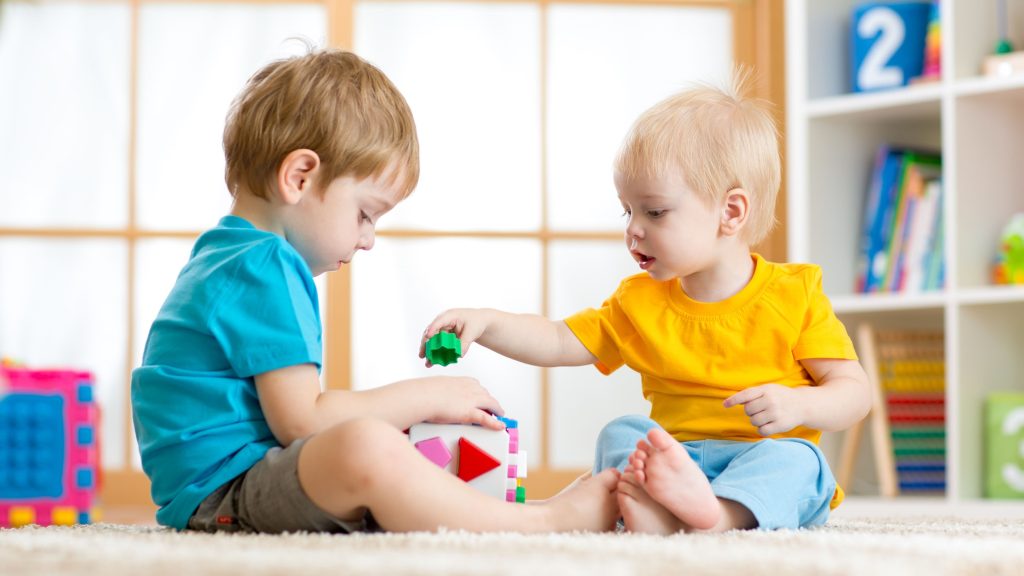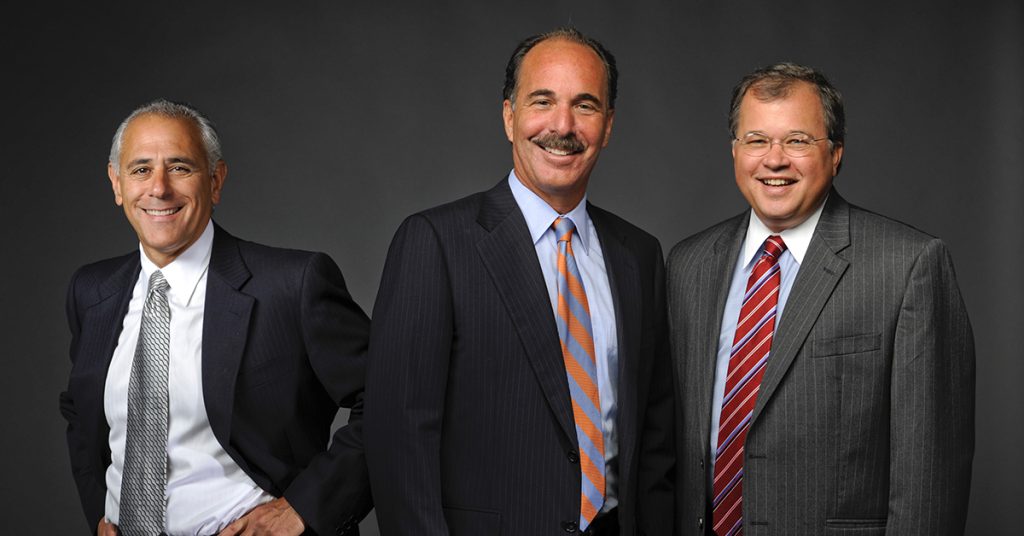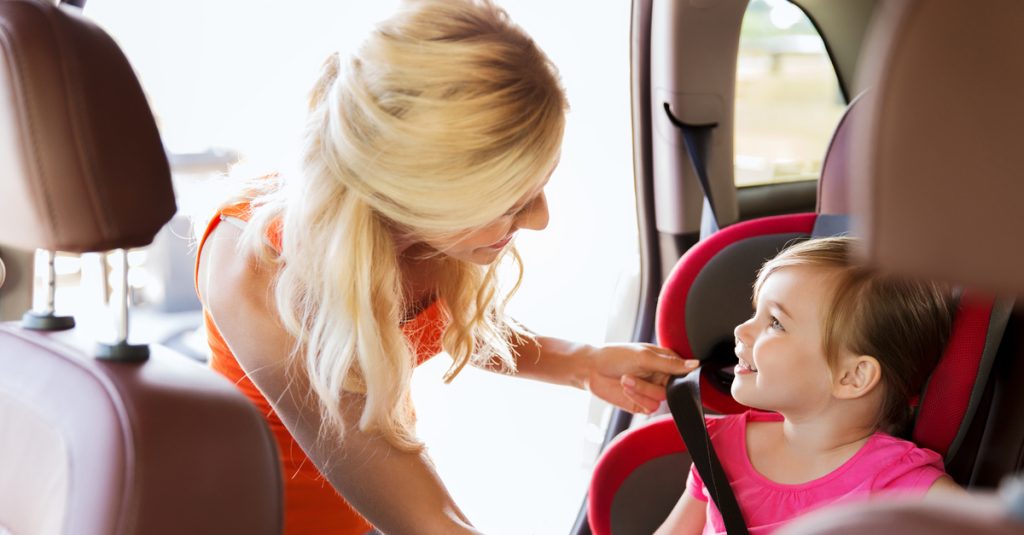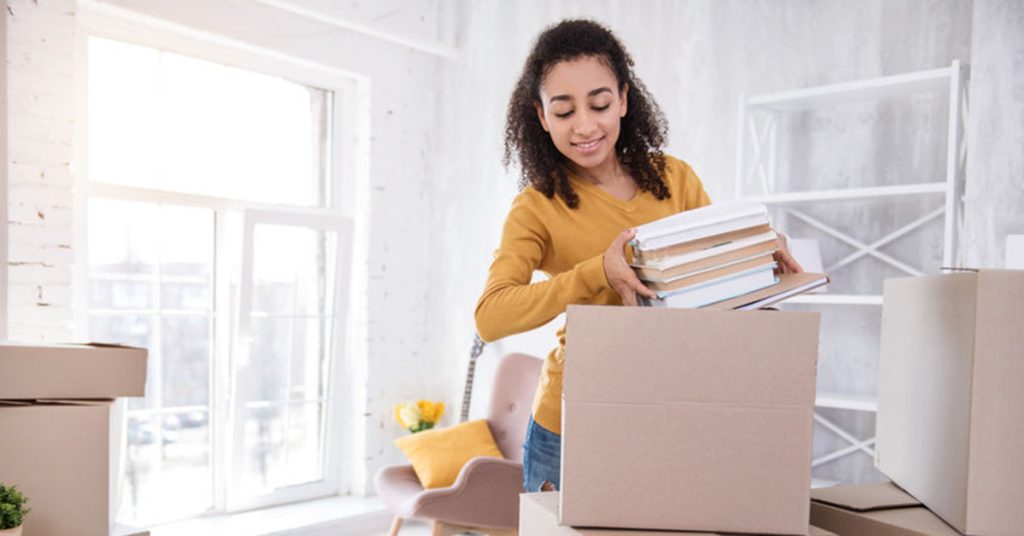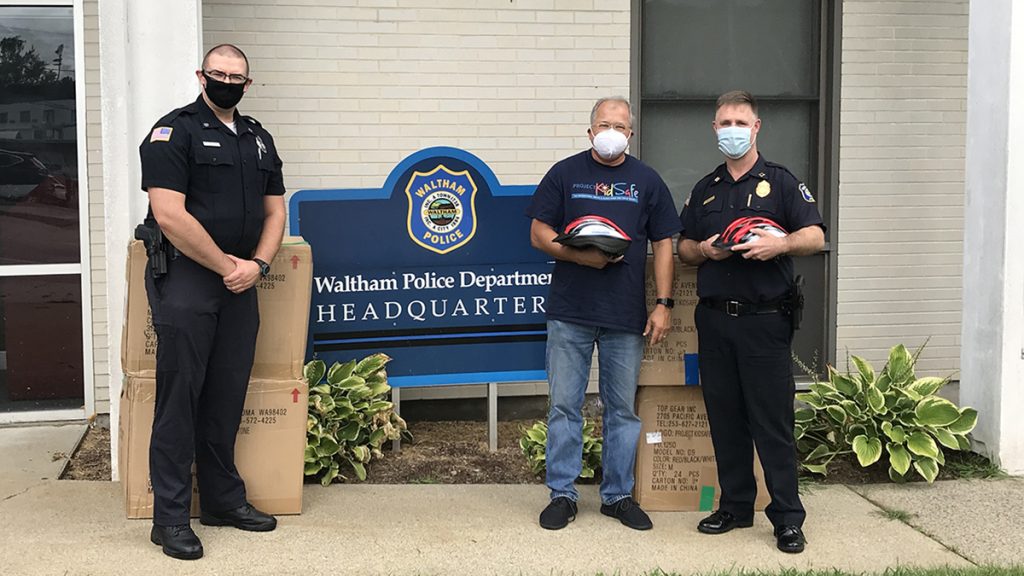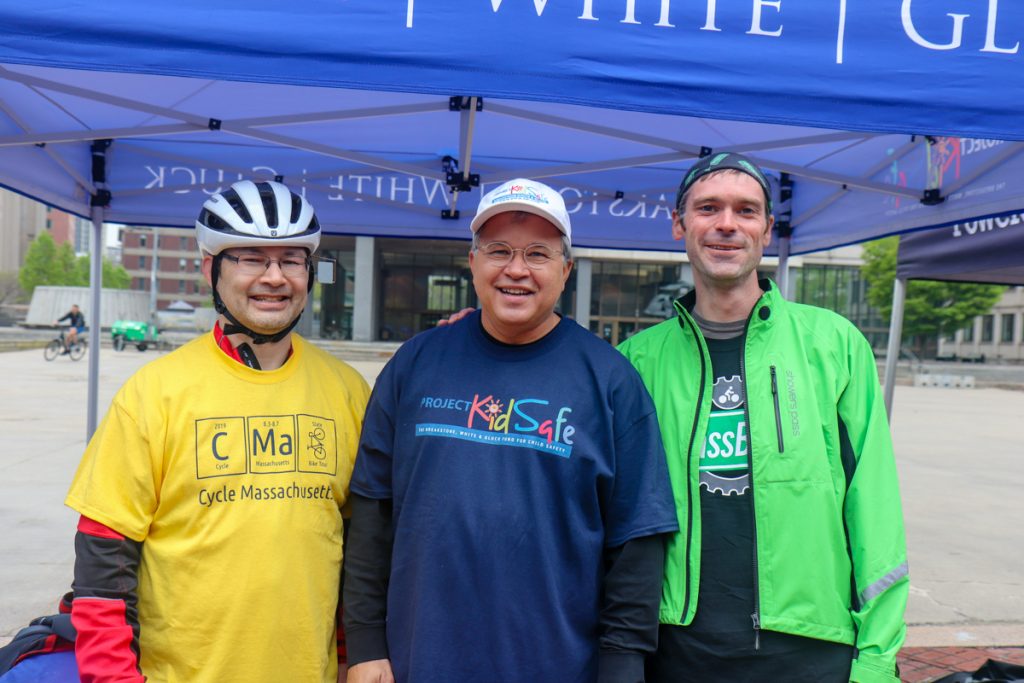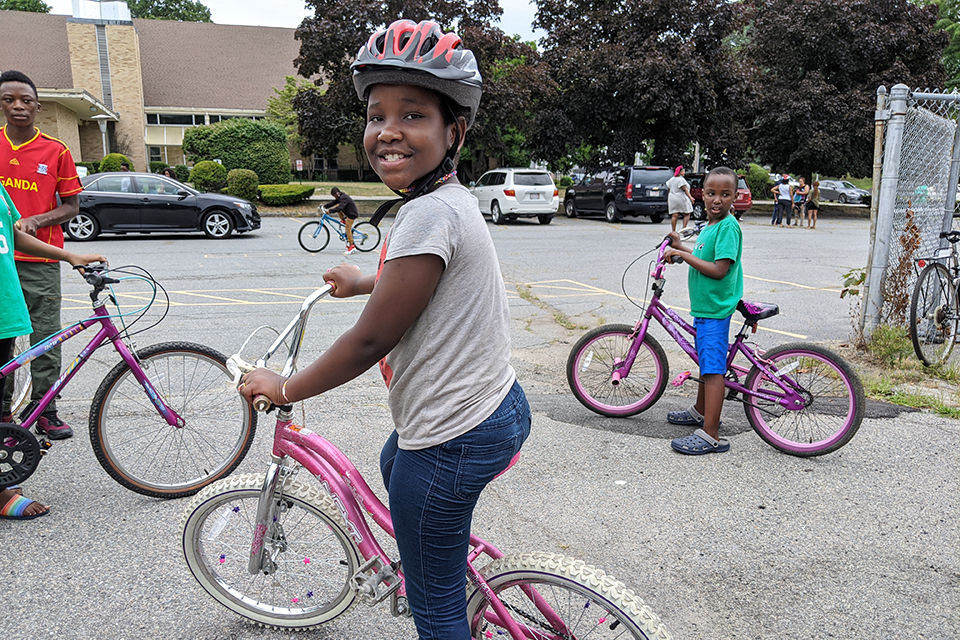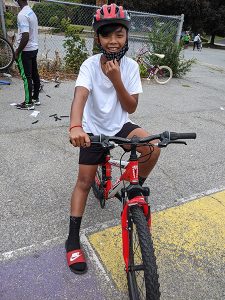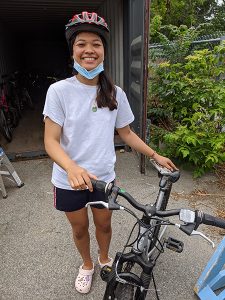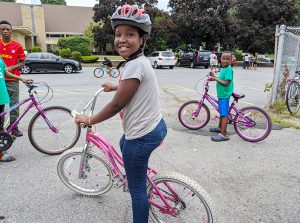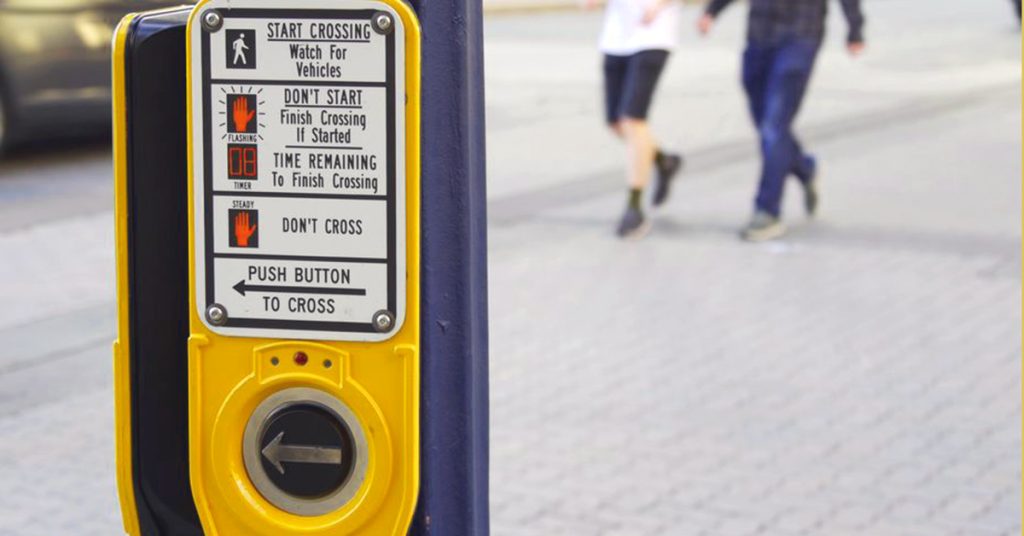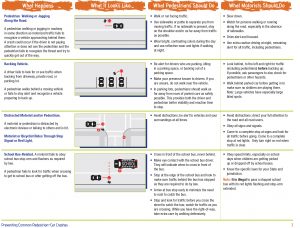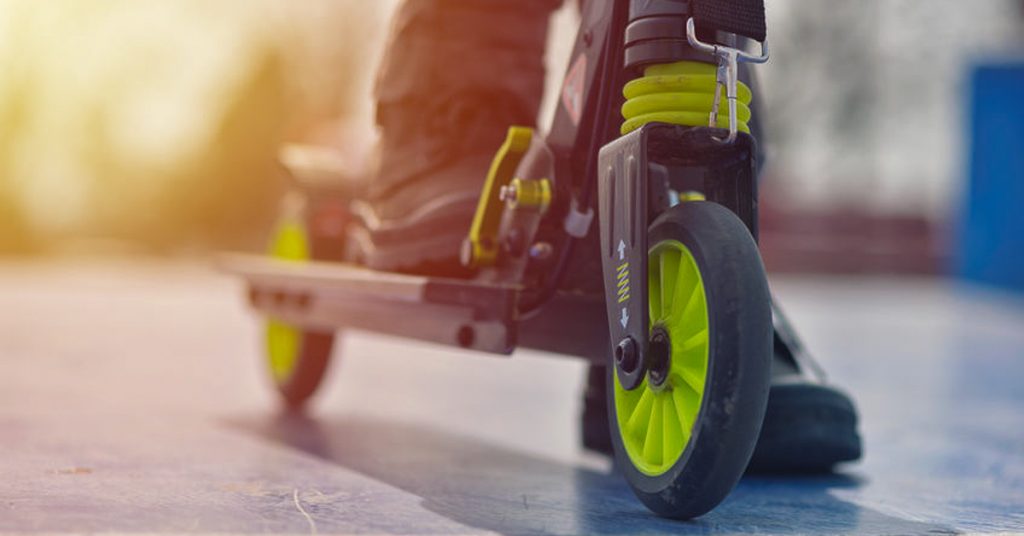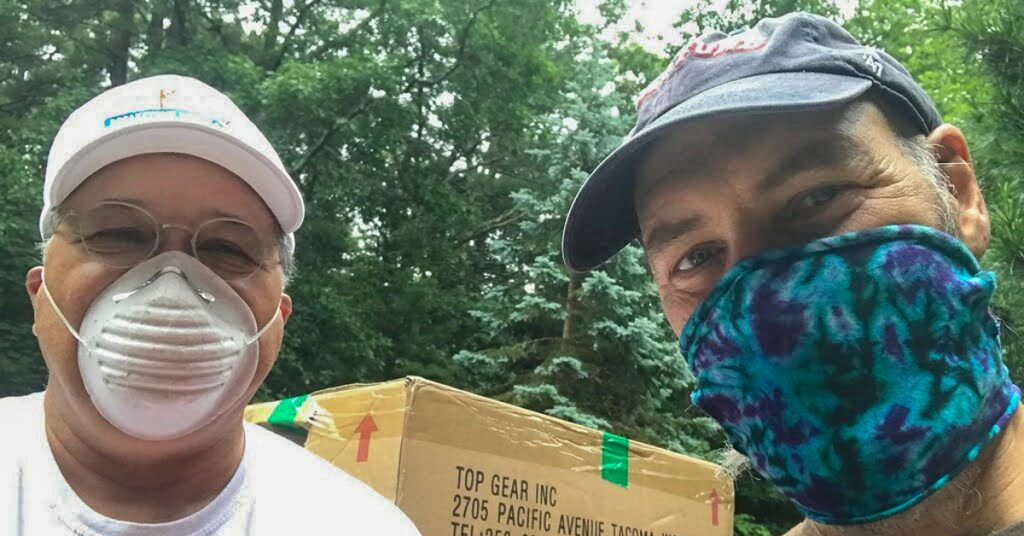Posts Tagged ‘“Boston personal injury lawyers”’
Trouble in Toyland Report Shares Toy Safety Tips for Holiday Shoppers
 Families often enjoy looking through toy catalogs together this time of year. After seeing what excites your child, you may be tempted to immediately order their holiday gifts. However, before you do, we encourage parents and grandparents to check the Trouble in Toyland report.
Families often enjoy looking through toy catalogs together this time of year. After seeing what excites your child, you may be tempted to immediately order their holiday gifts. However, before you do, we encourage parents and grandparents to check the Trouble in Toyland report.
The 35th anniversary Trouble in Toyland report was recently released. This year, U.S. PIRG warned about the dangers of:
- Mislabeled choking hazards
- Flocked animal figures (toys with small attached pieces)
- Recalled toys which may still be available online
- Noisy toys
- In-app purchases
- Not advisable for children
Choking Hazards
Parents are advised to look for small part warnings on toys. “Small part” is not a subjective term. It is anything that fits within the Consumer Product Safety Commission’s toy test cylinder. The test cylinder measures 2.25 inches long and 1.25 inches wide and is roughly the size of a young child’s throat. A small part may be a game piece or a marble of the right size. It may also include a toy accessory, such as doll clothing.
The most common “small parts” warning: “WARNING: CHOKING HAZARD–Small Parts. Not for children under 3 years.” Toys designed for children ages 3 through 6 must also carry warning labels indicating they are not safe for children under 3.
Parents can become familiar with the risks by reading this year’s Trouble In Toyland. Make it a priority not to purchase a product with small parts and bring them into your home. Always read toy safety and age appropriate labels. Doing so puts you on a path to protect your family.
Flocked Toys
If you purchase a toy figurine or doll that comes with accessories, such as ribbons or clothing, remember your child can put those small parts in their mouths. Calico Critters – the popular animal family figures – are now under scrutiny.
One child was killed while playing with a set containing a small pacifier in New Mexico, according to a court filing. Another child in Utah also choked on the pacifier accessory, according to the a local news website, and shared in the Trouble in Toyland report. Both children were under 3 years old.
Fortunately, there are many versions of toys. If you find a toy you like and it has small fabric parts, keep looking until you find one without removable accessories.
Online Toy Shopping
Trouble in Toyland shared a valuable insight about searching for holiday toys on Amazon. If you search for “toys for 2-year-old boys,” for instance, you may see a number of listings which do not provide a small part warning. Do not trust that searching by year means toys are screened for safety. Remember, Amazon is a marketplace of merchants, not just one company. Closely look at product descriptions before making a purchase. In addition to reading reviews, you want to confirm the details. Look at the product picture, then read the description. Double check the product packaging once it arrives by mail and open it to confirm it has the parts you expected.
Beware of recalled toys as well. Since the 2019 Trouble in Toyland, the Consumer Product Safety Commissioned issued 10 toy recalls in the U.S., according to this report. When a product is recalled, it should be immediately removed from the store shelves and online listings. Some toys were still being sold online after recalls. Researchers even found one toy – a Fisher-Price Barbie Dream Camper which was recalled in February 2019 – still on sale. The camper was an outdoor riding toy for children. The CPSC received 17 reports of campers continuing to travel after the foot pedal was released.
Not Advisable For Children
Also featured was a section called, “items not advisable for children.” These items are not really toys, but are given to children as toys. At the top of the list is high-powered magnet desk sets. We wrote about the dangers of high-powered magnet sets last holiday season. Magnet sets may seem like fun gifts for adults, but you should never purchase one because they are so dangerous and the small parts can stick around your home forever. Children can be tempted to play with these magnets and swallow them. At this point, the magnets can attempt to connect together in a child’s stomach. The magnets touched on some serious personal injuries.
In September 2020, a 9-year-old boy took two magnets from a Neutronball building set and placed them on his lip, pretending to have a piercing. He then swallowed them and had to seek medical treatment at a hospital. In May, another 9-year-old swallowed parts from a Zen Magnets LLC set. She hid this from her parents for a week, until she began suffering intense stomach pain. She required surgery, but survived.
Beware of Digital Apps
Parents may be asked to sign up for an app related to a “smart toy” their child received as a gift. Or a child may have received a tablet or cell phone and try to sign up for apps themselves.
While there is a case to be made for limiting your child’s screen time overall, beware of giving your child access to digital apps. These can be tempting and children may like the graphics and thought of winning a prize. The Trouble in Toyland report mentioned one app called Coin Master. This is rated for ages 13 and over, though the graphics may easily capture the attention of a younger child.
We are sharing this story because Coin Master offers in-app purchases. The most expensive option is $99.99. Children may only see higher options once they get into the game.
Free Legal Consultation – Boston Toy Safety Lawyers
Breakstone, White & Gluck has over 100 years combined experience representing individuals who have been injured by the negligence or wrongdoing of others. Our firm is highly experienced in the area of product liability and injuries caused by defective products. We are writing about holiday toy safety as part of our Project KidSafe campaign, where our goal is to protect children from injuries. For the past 8 years, our attorneys have also donated 30,000 bicycle helmets to children across Massachusetts to protect against head injuries.
If you have been injured, learn your legal rights. For a free legal consultation, contact Breakstone, White & Gluck of Boston at 800-379-1244 or 617-723-7676 or use our contact form.
Breakstone, White & Gluck Receives Tier 1 Rankings for Personal Injury and Medical Malpractice in U.S. News 2021 “Best Law Firms” Awards
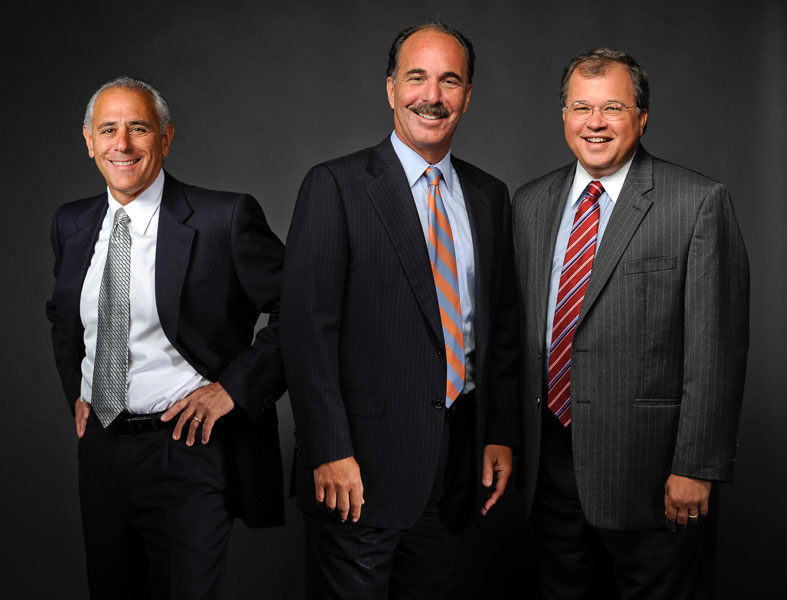
From left to right, our partners: Ronald E. Gluck, Marc L. Breakstone and David W. White. Breakstone, White & Gluck recently received two tier 1 rankings in the U.S. News “Best Law Firms” rankings. Our three partners were recognized this year individually in the annual Best Lawyers rankings in August. Our associate, Reza Breakstone, was also recognized in the Best Lawyers: Ones to Watch list.
It is our pleasure to announce that Breakstone, White & Gluck of Boston has received two Tier 1 rankings from the U.S. News – Best Lawyers® 2021 edition of “Best Law Firms.” The firm received a Tier 1 ranking in the specialty of personal injury litigation for plaintiffs in Boston. The firm also received a Tier 1 ranking in medical malpractice law for plaintiffs in Boston.
U.S. News & World Report and Best Lawyers compiles the “Best Law Firms” rankings annually to recognize firms for professional excellence and consistently impressive ratings from clients and peers. A firm must have at least one attorney recognized on The Best Lawyers of America list to be eligible for a “Best Law Firms” ranking. All three of our partners – Marc L. Breakstone, David W. White and Ronald E. Gluck – have been individually recognized, including by the 26th edition of The Best Lawyers in America, which was announced in August 2020.
Firms are recognized based on a rigorous evaluation process, including a collection of client and lawyer evaluations, peer reviews from leading attorneys in a field and review of additional information law firms submit may submit for consideration. Awards are given in 75 national practice areas and 127 metropolitan practice areas.
Recognized firms received a tier 1, tier 2 or tier 3 rating. Breakstone, White & Gluck received Tier 1 rankings in personal injury and medical malpractice and these reflect the highest level of respect a firm can earn among other leading leaders and clients in local communities and practice areas.
Attorney Marc L. Breakstone was recognized by Best Lawyers in August in medical malpractice law – plaintiffs, personal injury litigation – plaintiffs and professional malpractice law – plaintiffs.
Attorney David W. White was recognized by Best Lawyers in personal injury – personal injury litigation – plaintiffs, insurance law and medical malpractice law – plaintiffs.
Attorney Ronald E. Gluck was recognized by Best Lawyers in personal injury litigation – plaintiffs.
Attorney Reza Breakstone was recognized by Best Lawyers in America: Ones to Watch (2021) in medical malpractice law – plaintiffs.
More Recognition for Breakstone, White & Gluck
Breakstone, White & Gluck of Boston offers our clients more than 100 years combined experience in the handling of personal injury and medical malpractice cases. We are proud of our consistently strong results and to have achieved a high level of satisfaction from our clients. We invite you to read some of our client reviews or our case results in the areas of personal injury, medical malpractice and car accidents.
Breakstone, White & Gluck been consistently recognized for our attorneys’ results for clients. Best Lawyers and Best Law Firms have mentioned our firm name in at least one practice area each year since 2011.
In addition, for the 17th year, our lawyers were recently selected to the annual Massachusetts Super Lawyers lists, as top rated Boston personal injury and medical malpractice lawyers. Breakstone, White & Gluck also earned a spot on the Top 100 Massachusetts Super Lawyers list and has received past rankings on Top 100 New England Super Lawyers. The Top 100 lists are notable because they draw from attorneys across all practice areas, not just our firm’s specialties.
Our attorneys also maintain an AV rating – the highest rating for legal abilities and professional standards from Martindale-Hubbell.
Free Legal Consultation – Boston Personal Injury Lawyers
If you have been injured by someone else’s negligence or wrongdoing, learn your legal rights. For a free legal consultation, contact our attorneys at 800-379-1244 or 617-723-7676. You can also use our contact form.
For Massachusetts Parents, Resources from Child Passenger Safety Week
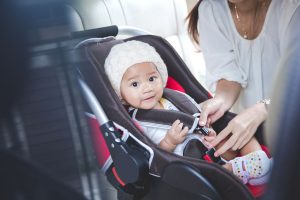 While there is so much going on right now, we want to put a spotlight on Child Passenger Safety Week. The safety week began Sunday, Sept. 20th and continues through Saturday, Sept. 26th.
While there is so much going on right now, we want to put a spotlight on Child Passenger Safety Week. The safety week began Sunday, Sept. 20th and continues through Saturday, Sept. 26th.
Motor vehicle accidents are the leading cause of death among children in our country, according to the CDC. Parents, of course, want to protect their children and follow Massachusetts car seat and safety belt laws. But this can be a challenge as children outgrow car seats, especially during COVID-19, when most shopping has to be done online.
We hope parents and grandparents find the resources on this page helpful. Remember, you want to find a car seat that fits your child and your vehicle. You also want to feel comfortable using it each day. A second-hand car seat may work for you. But for many people, we encourage to you start with a new car seat if you can.
In Massachusetts, children must ride in federally-approved passenger safety seats. They must ride in a car seat from birth until they reach age 8 or stand more than 57 inches tall. Children must be properly fastened and secured according to the manufacturer’s instructions. But where should you start? This is where parents often grow frustrated, as there are different car seats based on a child’s age and size. We will get you started: Children should start with rear-facing car seats until they reach the top height or weight limit set by the car seat maker. They will then move to a forward-facing car seat, then finally a booster seat.
Here are some resources:
- Child Passenger Safety Week. Read safety resources from the National Highway Traffic Safety Administration.
- Find the Right Car Seat. Check out this NHTSA chart on finding the right car seat.
- Massachusetts Car Seat Resources. Most years, the state of Massachusetts and local communities offer free car seat inspections and fittings for parents. This is an invaluable opportunity for parents. Due to COVID-19, you can expect fewer – if any – in-person car seat inspection opportunities. We suggest you start by visiting the state web page. Here is another helpful resource: Massachusetts Car Seat FAQs.
- Watch a How-To Video. While it may not be the same as an in-person inspection, the NHTSA offers helpful videos to help parents secure children at different stages.
- Keeping Asking for Help. If you are still unsure about your car seat, it is alright to keep asking for help. Try asking a family member or friend. You can also try your pediatrician’s office or visit your local police department’s website to see if they are offering car seat inspections at this time.
- Check Your Car Seat for Recalls. Check www.cpsc.gov to see if your car seat has been recalled. If you find a recall, call the manufacturer immediately and ask for the recall action. Often, a company will send a replacement part. But they may issue you a refund and ask you to return a defective car seat to a local store. Always follow a manufacturer’s instructions on disposing a recalled product.
- Register Your Car Seat. It’s easy to become distracted when you buy a car seat or a major item. Did you forgot to register yours? Take a minute to visit the manufacturer’s website now. Better late than never on this one. If there is a recall, this is the best way to get timely notification.
- Buckle Children Up Last. Pack everything up for the day in your car – work bags, backpacks, sports gear and lunch boxes – then buckle your child into their car seat last. This way you can always keep them in sight and talk to them as you get ready.
About Breakstone, White & Gluck – Boston Car Accident Lawyers
With more than 100 years combined experience, Breakstone, White & Gluck represents those have been injured by negligence and wrongdoing in Massachusetts. We specialize in the handling of personal injury, medical malpractice and car accident cases, including the representation of cyclists and pedestrians who have been injured. To learn more about our work, read our Car Accident Case Results page.
For a free legal consultation, contact our lawyers at 800-379-1244 or 617-723-7676 or use our contact form.
Safety Reminders for College Students and Others Renting Apartments in Boston

College students and other renters have the right to live in safe apartments.
September has arrived. In Boston, college students returned a few weeks ago and the focus has been preventing the spread of COVID-19. But apartment safety is another important topic – for college students as well as other renters.
If you rent an apartment, your safety is paramount, and that has not changed during COVID-19. We encourage you to inspect properties before signing leases and moving in. Speak to your landlord, your college or your family if you find yourself in unsafe conditions.
At Breakstone, White & Gluck, our personal injury lawyers are experienced in cases involving landlord negligence resulting in the injury of our clients. In Allston and other parts of Boston, we have represented college students and other renters who have been very seriously injured in falls and fires. These are devastating stories, more so because landlords neglected their responsibilities to maintain safe premises.
During COVID-19, there is a very real risk that landlords may fall behind or neglect to maintain their properties. If you rent and see a hazard, be prepared to speak up so no one is injured.
We share a few safety tips and resources:
Notify Your Landlord of Hazards Promptly
If you see a hazard, notify your landlord or the property owner. We know it can be overwhelming to be 19 or 20 years old, living on your own for the first time and stressed about approaching a landlord. Honestly, this is never easy – even for renters with a few years of experience. But if you need help, you should reach out to your parents, family members or someone else you trust. Your safety – and the safety of your roommates and others in the building – is the priority.
When you contact your landlord, do so in writing. Describe what appears unsafe and email a photo. Ask them to come inspect the problem. If you do not make any progress, call your college or the City of Boston’s Inspectional Services Department.
Thoroughly Inspect Your Apartment Regularly
If you recently signed a lease, you likely inspected the apartment first. Your apartment may be in good condition and look well-maintained. But things can break. Safety hazards can emerge with use. Monitor conditions throughout the year so no one is injured.
If you are in the middle of a lease or have rented through COVID-19, you should also conduct a thorough inspection with a new eye.
You may see hazards you have learned to live with. A few examples include broken handles, railings and staircases. Collapsed wood on porches or decks, which will eventually rot away. Floors which are so worn you have already slipped on them. We will stop here. You cannot live with these things. Doing so could result in an accident – and will likely result in you losing part of your security deposit down the road. Alert your landlord now.
Never Forget the First Step of Safety: Smoke Alarms
Smoke alarms are the most basic tools you have to protect yourself. Make sure your apartment has working smoke alarms and carbon monoxide detectors at all times. Regularly replace the batteries and test them.
Check Out These Websites and Resources for Tenants
Know Your Rights When You Rent in Boston
City of Boston Inspectional Services
Attorney General’s Guide to Landlord and Tenant Rights
A Warning About Fake Apartment Listing Scams, WCVB-TV Boston
Injured by a Landlord’s Negligence in Massachusetts? – Free Legal Consultation
With more than 100 years combined experience, Breakstone, White & Gluck and our Boston personal injury lawyers fight for the rights of those injured by negligence and wrongdoing in premises liability cases. Our attorneys have been consistently recognized among the best lawyers in Massachusetts and New England by Super Lawyers and Best Lawyers in America. We provide experienced representation to those injured by the negligence of property owners and landlords, including in falls, porch collapses, fires and elevator accidents.
If you have been injured by unsafe conditions in an apartment, learn your legal rights. Call Breakstone, White & Gluck at 800-379-1244 or 617-723-7676 or use our contact form.
Six Years of Partnering with Waltham Police on Bike Safety
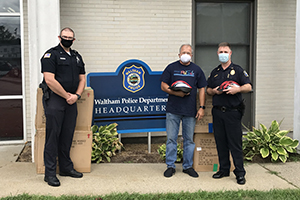 One of our longest-running partnerships through our Project KidSafe campaign is with the Waltham Police Department. For the 6th year, Breakstone, White & Gluck was pleased to donate 100 bike helmets for officers to distribute to children who need one. Attorney David W. White delivered bike helmets to Captain Jeff Rodley (far right) and Officer Chris Benson (far left) at the Waltham Police Department last week.
One of our longest-running partnerships through our Project KidSafe campaign is with the Waltham Police Department. For the 6th year, Breakstone, White & Gluck was pleased to donate 100 bike helmets for officers to distribute to children who need one. Attorney David W. White delivered bike helmets to Captain Jeff Rodley (far right) and Officer Chris Benson (far left) at the Waltham Police Department last week.
We are pleased to make the donation as Massachusetts schools begin to re-open. We know more children and families have been riding bikes since the COVID-19 closures last March. We also know there may be more children riding to school and it is critical that they protect themselves – every time they ride. Wearing a helmet makes good sense and is the law in Massachusetts for children 16 and younger.
Learn more about our Project KidSafe bike safety campaign. Breakstone, White & Gluck is a Boston personal injury law firm. To learn about our work and our attorneys, visit our website.
Cyclists, Massachusetts is Still Celebrating Bay State Bike Month
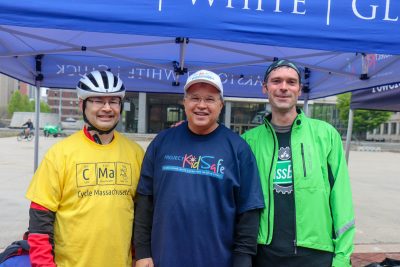
From 2019 Bike Month: Attorney David W. White (center) with Lee Toma (left) of Milton Bike and Galen Mook, executive director of MassBike.
Cyclists have something to look forward to this month. A long-time tradition will continue in Massachusetts: Bay State Bike Month. The schedule began on Sept. 1 and runs through the end of the month.
We encourage everyone who commutes to work to check out the schedule. Breakstone, White & Gluck usually participates in Bike Month activities in the Boston area and we have a lot of fun. We donate bicycle helmets to various events as part of our Project KidSafe campaign. Last year, Attorney David W. White was fitting helmets for commuters at Boston’s Bike to Work Festival at City Hall Plaza.
This is always a worthwhile opportunity to connect with other cyclists and learn about safe riding techniques. But we give cyclists a little more of a nudge this year, after so many of us have been isolated due to COVID-19.
Now in its 26th year, Bay State Bike Month is organized by MassBike, MassCommute and the Massachusetts Coalition of Transportation Management Associations. The goal is to promote cycling for commuting, fitness and recreation, and also introduce the activity to new riders. This year, the event was postponed from May to September due to COVID-19.
The schedule is lighter this year, but small and online events are being added daily. The signature event, MassCommute Bicycle Challenge, will still be held – though virtually – from Sept. 19 to 27. Get ready to log your miles.
While fewer cyclists may physically gather at events, we know many are interested in cycling and concerned about the risk for accidents. That’s why we want to share this video, “Safer Trucking in Changing Cities,” which was recently shared in the Somerville Bicycle Committee’s monthly newsletter. The video was funded by the Joe Lavins Fund for Bicycle Safety.
We encourage anyone interested in cycling on the road to watch this video and hear from local cyclists and safety advocates. They expertly describe safety conditions for cyclists in the Boston area and explain how truck drivers can reduce the risk for bicycle accidents. One topic was infrastructure. If you are new to cycling, it may be valuable to hear the cyclists explain some of the safety infrastructure cities have built in recent years. The cyclists explained how bike lanes, separated bike lanes and bike boxes at the top of intersections can protect cyclists – if truck drivers take the time to learn their responsibilities and give cyclists adequate space in these areas.
[vimeo 307147180 w=640 h=360]
SAFER TRUCKING in Changing Cities from FOV videos on Vimeo.
About Breakstone, White & Gluck – Boston Personal Injury Attorneys
Breakstone, White & Gluck is an award-winning Boston law firm which specializes in personal injury law. With more than 100 years combined experience, our firm has represented drivers, passengers, cyclists and pedestrians injured by negligent driving in Massachusetts.
We have made a special commitment to bicycle safety in Massachusetts. Each year, we donate bicycle helmets to children as part of our Project KidSafe campaign, working in partnership with local police departments, bicycle committees and Massachusetts Safe Routes to School.
We proudly support MassBike as a business member. Our attorneys also work with MassBike to distribute our bicycle helmets as part of our Project KidSafe campaign.
Breakstone, White & Gluck Gives Bike Helmets in Lowell This Summer
- The Bike Connector donated refurbished bikes in Lowell. Breakstone, White & Gluck supported the donations by giving each cyclist a free helmet from our Project KidSafe campaign.
- The Bike Connector donated refurbished bikes in Lowell. Breakstone, White & Gluck supported the donations by giving each cyclist a free helmet from our Project KidSafe campaign.
- The Bike Connector donated refurbished bikes in Lowell. Breakstone, White & Gluck supported the donations by giving each cyclist a free helmet from our Project KidSafe campaign.
We are pleased to share an update from Lowell, where our partner, The Bike Connector, had a strong start-up year getting bikes and safety materials to students, despite the many challenges of COVID-19. We hope interest and momentum is building around The Bike Connector’s work.
As of mid-August, The Bike Connector had distributed 93 new refurbished bikes to local students (which is a big accomplishment, even in non-COVID times). Breakstone, White & Gluck was pleased to support the organization’s bike safety initiative. Our attorneys gave each student a new bicycle helmet, as part of our Project KidSafe campaign.
The Bike Connector had to relocate from its classroom due to COVID-19. It ended up working out of a storage container at Career Academy in Lowell Highlands, which is part of the Lowell Public School system. But the organization made the set-up work. They even enjoyed a few benefits, such as being able to work with students outside, having bikes and safety gear nearby and shade from the hot sun.
The organization identified youth who needed bikes by partnering with the Lowell Public Schools and other educational, non-profit and social services agencies across the city. These organizations included Brigid’s Crossing; Merrimack Valley Catholic Charities and the Cambodian Mutual Assistance Association. Other partners: the Boys and Girls Club of Greater Lowell; UMass Lowell Freewheelers; Elevate New England; and New American Center.
If you were in Lowell this summer, you may have seen The Bike Connector giving away refurbished bikes and helmets. You may have seen the students and their families having a lot of fun as they received new bikes. If you looked closer, the excitement extended beyond students and their families. Word of events spread quickly in neighborhoods.
Behind the scenes, what you didn’t see was The Bike Connector also offered a four-week online summer bike academy to incoming freshmen at Lowell High School this summer. This program introduced students to bike safety, bike maintenance, the rules of the road, Lowell geography and urban planning. Each student who participated earned a bike, helmet and light. We hope this course proves to be a guide as students return to school and want to travel safely on bikes.
About Breakstone, White & Gluck – Boston Personal Injury Lawyers
Breakstone, White & Gluck is a Boston personal injury law firm which represents clients who have been seriously injured by negligence or wrongdoing. In 2013, our lawyers founded our Project KidSafe campaign, with a goal of encouraging children to wear helmets every time they ride. By wearing a properly-fitted helmet, children and other cyclists can protect against head injuries. In Massachusetts, children age 16 and younger are required to wear helmets. But children need more. They need a strong encouragement from their families and others in the community. If you are a parent, we encourage you to wear a helmet along with your child.
Learn more about Breakstone, White & Gluck and our Project KidSafe campaign.
Drivers Making Unsafe Turns Cause Many Pedestrian Accidents in Intersections
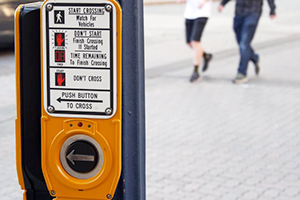 Many of us will head back to work and school in September and October, at least part time. Due to COVID-19 and our new schedules, some of us may choose to walk for the first time, instead of relying on public transportation. If you walk, use caution – especially in intersections.
Many of us will head back to work and school in September and October, at least part time. Due to COVID-19 and our new schedules, some of us may choose to walk for the first time, instead of relying on public transportation. If you walk, use caution – especially in intersections.
Nearly 20 percent of all traffic accidents result in pedestrian fatalities, according to the National Safety Council. An estimated 40 percent of all pedestrian accidents occur in intersections, according to the Federal Highway Administration (FHWA).
A few facts from a FHWA study on pedestrian accidents in intersections:
Drivers are making unsafe turns. According to this study, one in five pedestrian accidents at signalized intersections occurred when vehicles made unsafe turns.
Left-turning vehicles cause more pedestrian accidents at intersections. Pedestrians at signalized intersections are more likely to be hit by a left-turning vehicle. Researchers found 60 percent of drivers who hit pedestrians turned left, while 40 percent turned right. The FHWA researchers noted a driver’s view may be impeded more when turning left.
Pedestrians walk safer in groups. Researchers concluded that pedestrians walking in groups were less likely to be hit by left-turning vehicles than those walking alone. Again, this may be due to drivers being able to see pedestrians better. There was a notable difference – three out of four pedestrians hit by left-turning vehicles were walking alone.
Take Steps to Protect Yourself at Intersections
If you are a pedestrian, cars and trucks have the advantage in size. You have to assume drivers won’t always be able to see you as traffic moves. You also have to be prepared for negligent operators, who are speeding or allow themselves to become distracted.
You can take steps to protect yourself though. Purchasing a neon vest is a good place to start. If a driver can see you, they may be more likely to slow down. Also take advantage of technology. Use Google Maps or another traffic app to plan your walking route.
At intersections, look for crosswalks with pedestrian traffic signals. Wait for the walk signals before crossing. Drivers have a responsibility to yield the right of way to pedestrians in all marked crosswalks in Massachusetts. Yet pedestrian signals are more visible and can make a big difference in protecting pedestrians.
Drivers also have a responsibility to check for pedestrians (and cyclists) before turning at intersections. Studies have found that drivers are not looking enough – which is frustrating because more cars now have rearview mirror cameras to help them. Drivers need to be scanning the intersection more in front and behind for pedestrians and cyclists. This is critical in Boston, Cambridge and other cities because commercial truck drivers travel much higher up than pedestrians and cyclists and often, there is no eye contact. But truck drivers are not the only risk. Pedestrians have to be aware of all vehicles – SUVs, cars, buses. These drivers should also be paying attention to you.
Breakstone, White & Gluck – Boston and Cambridge Pedestrian Accident Lawyers
At Breakstone, White & Gluck, our Boston personal injury lawyers fight for justice for those who have been seriously injured by negligence or wrongdoing. With more than 100 years combined experience, our attorneys specialize in the representation of those injured in pedestrian accidents and bicycle crashes in Massachusetts. For a free legal consultation, call our attorneys today at 800-379-1244 or 617-723-7676 or use our contact form.
Safety Tips for Using Children’s Scooters in Massachusetts
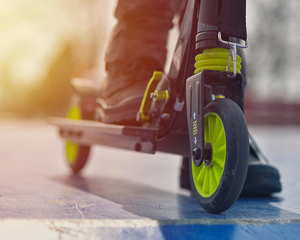
Safety tips for children’s scooters.
Children are eager to find fun activities this summer. In response, many parents have purchased new scooters online. As you open the box, remember to approach your child’s scooter as you would a bicycle. Make sure you have an age-appropriate and safe scooter model, along with a safety helmet.
Pre-Purchase: Read Product Materials
Before you buy, carefully read the product description. For children, plan to buy an age-appropriate non-motorized scooter. Check out online reviews and ask friends about their experiences purchasing scooters. Then, search for product recalls on the Consumer Product Safety Commission website. This is essential because at times, online vendors have been caught selling recalled products. Your child could be seriously injured on a recalled scooter.
Try to purchase a new scooter for your child. While bicycles can be passed down and refurbished, children usually wear their scooters out fairly well, especially the thin, fold-up models. If you do find a hand-me-down scooter, do a thorough inspection before giving it to your child. Locate the model number and check the recall database.
Post-Purchase: Inspect Your Delivery
When the scooter arrives, check that you have received the right model number and all the parts. Nothing should be broken or cracked. Register the scooter with the manufacturer to receive product recalls and other updates. Bicycles, skateboards and scooters all contain small parts and screws. Because your child probably rides daily, we suggest keeping the box. Scan the instructions and product support number so they are easily accessible.
Purchase a Helmet
As part of our Project KidSafe campaign, Breakstone, White & Gluck encourages children to wear bicycle helmets to protect against head injuries. Your child should also wear a helmet every time they ride a scooter. Take time to make sure the helmet is properly-fitted so your child is comfortable wearing it.
This is a suggestion and a requirement. A little background: Under Massachusetts law, children 16 and younger must wear helmets on bikes and scooters, as well as other riding toys.
The bicycle helmet law has been in place longer. In 1994, the state of Massachusetts approved a bicycle helmet law for children age 12 and younger. Then, in 2004, Massachusetts expanded the helmet law to children age 16 and younger on bikes, as well as scooters, skateboard, inline skates and manually-propelled wheeled vehicles. These laws are M.G.L. c. 85, § 11B and M.G.L. c. 85, § 11B1/2.
Some parents keep separate helmets for scooters and bikes. It is also acceptable for children to use one helmet, so long as it meets the federal safety standard for bicycles, properly fits and is in good condition. One reminder though: if your child wears one helmet, expect it to wear faster. Be prepared. Stowaway an extra helmet in your garage.
Look for helmets to meet this safety standard, U.S. Consumer Product Safety Commission (16 C.F.R. part 1203). These helmets are designed to protect against skull fractures and severe brain injuries sustained in bicycle accidents and falls. For more information, read the CPSC’s article, “Which Helmet for Which Activity?”
Driveway Safety
Many scooter accidents happen in or near driveways. Think about how you can protect your children while they ride. One idea is you can purchase driveway fencing. You can buy light-weight brightly colored fencing which retracts when you are done playing. Another strategy is you can park your cars between the children’s play area and the road.
Steer Clear of Large Vehicles
Even quiet streets see large vehicles, including SUVs, delivery trucks and trash vehicles. These vehicles can be deadly near young children on scooters. When a large vehicle appears, teach your child to move to a safe location (this may be your front lawn, your driveway, the sidewalk or the side of the road). Children are safest stepping off the scooter until the vehicle turns off the engine and parks or departs. Drivers backing up can be the most dangerous for children on scooters. Have your children wait inside while you back in or out of your driveway.
Bright Colored Clothing
Buy your child a brightly colored vest, shirt or jacket to wear when they ride near your home or around the neighborhood. Drivers don’t expect scooters – they move differently than bicycles or pedestrians – and you want them to really see your child. To reinforce the message, you can also wear brightly colored clothes as you walk along your child. Everyone is safer when they are more visible to traffic.
Park Scooters at Night
For safety, children should park their scooters at night. Drivers have a responsibility to look and operate with reasonable care. But the truth is more accidents occur at night and drivers are less likely to see bikes and scooters. Children’s scooters may have neon stickers, but these are hardly visible in night traffic.
Non-Motorized Scooters for Children
Say no to motorized scooters. The American Academy of Pediatrics (AAP) has advised against motorized scooters for children under 16. Powered scooters are associated with three times as many severe injuries to children in the U.S., according to a New York Times article on the study.
Scooter Injuries. In the 2008 study, children were more likely to suffer concussions and severe head injuries on motorized scooters. Leg injuries also increased.
More recently, in 2017, the CPSC reported non-motorized scooters were associated with the most injuries among two age groups, children 12 and younger and children under 15. That year, non-motorized scooters caused roughly 20 percent of injuries in both age groups and four deaths of children between 4 and 8 years old. All four children were riding scooters near their family’s home or driveway.
Defective Scooters. Do not assume your child was doing something wrong if the scooter starts to break or a piece falls loose. Manufacturers have had to recall defective scooters on many occasions. Report the incident to the manufacturer. Your report may confirm other reports and prompt them to issue a recall to prevent other scooter accidents and injuries. This is how the process works and it only works if consumers come forward with safety complaints.
Discard Scooters Carefully. If your child wore out their scooter, it’s not safe for use and you should disassemble it. This way, it will not injure another child.
About Breakstone, White & Gluck – Boston Personal Injury Lawyers
At Breakstone, White & Gluck, our Boston personal injury lawyers represent those who have been injured by negligence and recklessness. We are also committed to protecting against head injuries through our Project KidSafe campaign, donating 30,000 bicycle helmets to Massachusetts children since 2013.
We urge families to buy scooters carefully. Always buy a helmet. Always check for product recalls before you buy. Always carefully inspect the scooter when it arrives. Then, after you have taken these steps, you’re ready to enjoy the last few weeks of summer, watching your child ride their new scooter safely.
If you or your child are injured by negligence, please take time to learn your legal rights. For a free legal consultation, contact Breakstone, White & Gluck at 800-379-1244 or 617-723-7676 or use our contact form.
Breakstone, White & Gluck Partners with The Bike Connector to Protect Lowell Students on Bikes
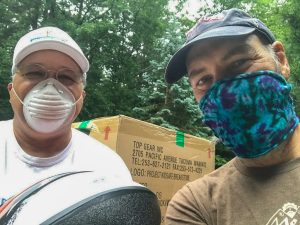
Attorney David W. White and Wade Rubenstein, president of The Bike Connector in Lowell.
Attorney David W. White was pleased to deliver 100 bicycle helmets to Wade Rubinstein of The Bike Connector in Lowell this morning. Breakstone, White & Gluck donated the helmets as part of our 2020 Project KidSafe campaign for bike safety.
This was our first donation to The Bike Connector and it was a real pleasure to meet Wade and learn about his work. The Bike Connector provides bikes to income-disadvantaged youth and immigrants throughout the city of Lowell. This summer, The Bike Connector is working with the city’s high school summer programs to distribute 100 free refurbished bikes. Now, each cyclist will also receive a free Project KidSafe bicycle helmet from Breakstone, White & Gluck.
The bicycles are important donations. In Lowell, there is no school bus service for high school students. Students can ride the Lowell Regional Transit Authority, walk or get a ride. Bicycles open up new opportunities for students to stay connected and on track with school activities.
“These helmets are really going to help keep kids in Lowell safe,” Wade said. “I want to thank Breakstone, White & Gluck for providing us these helmets. They are going to go a long way.”
Learn more about Breakstone, White & Gluck and our Project KidSafe campaign.


